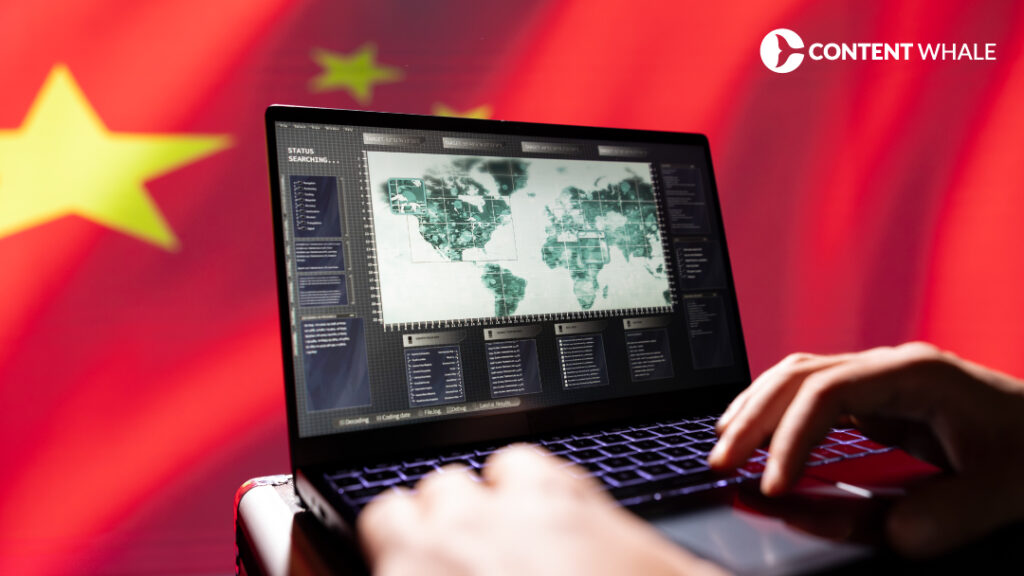The Chinese market, with its vast consumer base and growing economic influence, is a prime target for global businesses. However, navigating this market requires more than just a basic understanding of the language. English to Chinese translation services are essential for ensuring that businesses communicate effectively and resonate with Chinese consumers. In this blog, we’ll explore the importance of these services, backed by data and research, and discuss how businesses can leverage professional translations to succeed in China.
The Rising Demand for English to Chinese Translation Services
As China’s economy continues to expand, so does the demand for English to Chinese translation services. With a GDP of over $17 trillion in 2022, China is not just a major player in the global economy, but also the world’s largest consumer market. According to Statista, China’s e-commerce market is expected to exceed $3.3 trillion by 2024, making it imperative for businesses to effectively communicate in Chinese.
The complexity of the Chinese language, with its various dialects and scripts, adds to the challenge. Simplified Chinese is predominantly used in Mainland China, while Traditional Chinese is preferred in Taiwan, Hong Kong, and Macau. Moreover, Mandarin is the official language, but Cantonese, Shanghainese, and other dialects are also widely spoken. This linguistic diversity underscores the importance of professional translation services that can navigate these nuances and ensure accurate communication.
Why Certified Chinese Translation is Non-Negotiable

Certified Chinese translation is critical for businesses dealing with legal, medical, or official documents. In China, any legal document submitted to government agencies or courts must be in Mandarin Chinese to be recognized. The accuracy of these translations can make or break a business deal or legal case.
According to the China Law Blog, even minor translation errors can lead to significant legal disputes or the invalidation of contracts. Certified translations ensure that the content is not only accurate but also legally valid, providing peace of mind and legal protection for businesses.
For instance, a misinterpretation of a single character in a contract can completely alter its meaning, leading to potential financial losses or legal ramifications. Certified translators are trained to avoid such pitfalls, ensuring that every document is meticulously translated and compliant with local regulations.
The Impact of Professional Chinese Translators on Business Success
Professional Chinese translators play a crucial role in helping businesses navigate the complexities of the Chinese market. Unlike automated translation tools, which often produce literal translations that can miss the mark, professional translators bring cultural insights and industry-specific knowledge that are essential for effective communication.
The Chinese language is rich in idioms, proverbs, and cultural references that require a deep understanding of the culture to translate accurately. For example, the phrase “杀鸡儆猴” (shā jī jǐng hóu) literally means “kill the chicken to scare the monkey,” but it’s used to describe making an example out of someone to warn others. A professional translator would understand the context and convey the correct meaning, while a machine translation might produce a confusing literal interpretation.
Moreover, professional translators understand the importance of tone and formality, which can vary greatly depending on the audience and context. This is particularly important in business communications, where a respectful and appropriately formal tone can enhance relationships and foster trust.
Chinese Document Translation: A Critical Business Necessity
For multinational companies, Chinese document translation is not just a convenience—it’s a necessity. Whether it’s contracts, technical manuals, marketing materials, or financial reports, accurate translation is essential for maintaining consistency and avoiding misunderstandings.
A study by the Economist Intelligence Unit found that 64% of senior executives believe that language barriers significantly impact their company’s ability to expand internationally. Inaccurate translations can lead to misinterpretations that result in financial losses, legal disputes, and damaged business relationships.
For example, a poorly translated technical manual can result in improper use of machinery, leading to safety hazards and costly damages. Similarly, inaccuracies in financial documents can lead to compliance issues and financial penalties. Content Whale’s Chinese document translation services ensure that all your documents are translated with precision, helping you avoid these risks and ensuring smooth business operations.
Chinese Website Localization: Maximizing Engagement in a Digital World

As businesses increasingly rely on their online presence to reach Chinese consumers, website localization has become a critical component of their digital strategy. Chinese website localization involves more than just translating content—it requires adapting the entire website to meet the cultural, linguistic, and technical preferences of Chinese users.
Language Adaptation and Cultural Sensitivity: Chinese consumers have specific expectations when it comes to online content. For example, the use of red and gold, colors associated with good fortune and prosperity, can positively influence consumer perceptions. On the other hand, using the number “4,” which sounds like “death” in Mandarin, can have the opposite effect. Understanding these cultural nuances is key to creating a website that resonates with Chinese users.
Technical Optimization and SEO: Optimizing for Chinese search engines like Baidu, which commands over 70% of the search engine market share in China, requires a unique approach. Baidu’s algorithms prioritize content that is hosted within China and complies with local regulations, including the need for an ICP (Internet Content Provider) license. Content Whale’s Mandarin SEO services ensure that your website not only ranks well on Baidu but also delivers a seamless user experience.
The Challenges and Solutions of Mandarin SEO

Mandarin SEO presents unique challenges that require specialized knowledge and strategies. Unlike Google, Baidu has its own set of rules and preferences, which can make it difficult for businesses to achieve high rankings without the right expertise.
Keyword Localization: Effective Mandarin SEO starts with localizing keywords to reflect the search habits and preferences of Chinese users. For instance, the concept of “luxury” in China may be associated with different products or services compared to Western markets. Understanding these nuances is crucial for selecting the right keywords that will drive traffic to your site.
Compliance and Regulation: Baidu prioritizes websites that adhere to Chinese regulations, including content censorship and data privacy laws. Websites that fail to comply with these regulations may be penalized, resulting in lower rankings or even removal from search results. Content Whale’s team ensures that all localized content meets Baidu’s strict criteria, helping you maintain visibility and avoid potential penalties.
Technical Optimization: Baidu also favors websites that load quickly and are optimized for mobile devices, as the majority of Chinese internet users access the web via smartphones. This requires optimizing your website’s code, images, and layout to ensure fast loading times and a smooth user experience. Our experts at Content Whale provide comprehensive technical optimization services to ensure your website performs well on all devices.
Cultural Sensitivity: The Cornerstone of Effective Chinese Translation

Cultural sensitivity is a crucial aspect of successful Chinese translation. The Chinese market is deeply rooted in traditions and values that influence consumer behavior and perceptions. Understanding and respecting these cultural elements is essential for businesses looking to build trust and credibility with Chinese consumers.
Respect for Hierarchies and Social Norms: In Chinese culture, respect for authority and hierarchy is paramount. This is reflected in both language and behavior, where formal titles and honorifics are used to convey respect. A professional translator ensures that these cultural norms are observed in all communications, whether it’s a business email, marketing campaign, or legal document.
Avoiding Cultural Pitfalls: Certain topics, imagery, or phrases that are acceptable in Western cultures may be taboo in China. For instance, references to death or superstitions are generally avoided in marketing materials. Similarly, humor does not always translate well across cultures and can sometimes lead to misunderstandings or offense. Content Whale’s translators are trained to navigate these cultural sensitivities, ensuring that your message is both accurate and appropriate for the Chinese audience.
Localization of Idioms and Expressions: Chinese language is rich with idioms and proverbs that carry significant cultural meaning. Direct translations of these expressions often fail to convey the intended message. Professional translators at Content Whale understand the importance of these cultural references and can effectively localize them to ensure they resonate with the target audience.
Why Content Whale is Your Best Partner for English to Chinese Translation Services
Navigating the complexities of the Chinese market requires more than just linguistic skills—it demands cultural insight, technical expertise, and industry-specific knowledge. Content Whale is your trusted partner in delivering high-quality English to Chinese translation services that meet all these requirements.
1. Industry-Specific Expertise: Our team of professional Chinese translators has extensive experience across various industries, including legal, financial, healthcare, and technology. This ensures that your content is not only accurately translated but also tailored to your specific field.
2. Certified Translation Services: Content Whale provides certified Chinese translations for legal, medical, and official documents, ensuring compliance with local regulations and legal standards. Our certified translators guarantee the accuracy and legal validity of every document.
3. Comprehensive Localization and SEO Services: From website localization to Mandarin SEO, Content Whale offers a full suite of services designed to help your business succeed in the Chinese market. Our experts understand the nuances of Chinese culture and language, delivering translations that resonate with your target audience and drive business success.
4. Cultural Sensitivity and Precision: At Content Whale, we prioritize cultural sensitivity in all our translations, ensuring that your message is not only accurate but also culturally appropriate and engaging. Our attention to detail and commitment to quality make us the best choice for businesses looking to expand into the Chinese market.
Conclusion
Expanding into the Chinese market offers immense opportunities, but success depends on effective communication that respects the linguistic and cultural nuances of the region. Professional English to Chinese translation services are not just a convenience—they are a necessity for any business looking to thrive in this complex and dynamic market. By partnering with Content Whale, you can ensure that your translations are accurate, culturally sensitive, and optimized for success in China.
FAQs about English to Chinese translation services
1. What are the key challenges in English to Chinese translation services?
English to Chinese translation presents several challenges due to the complexity of the Chinese language. The primary issues include differences in grammar structure, the use of characters instead of an alphabet, and the cultural context required for accurate translation. Additionally, there are multiple dialects, with Mandarin being the most widely spoken, but Cantonese and others are also important in specific regions. Professional Chinese translators are essential to overcome these challenges, ensuring that translations are not only accurate but culturally appropriate and linguistically precise.
2. Why is certified Chinese translation crucial for legal documents?
Certified Chinese translation is vital for legal documents because it ensures that the translation is accurate, legally valid, and recognized by courts and government agencies in China. Legal terms often have specific meanings that require precise translation to avoid misunderstandings or disputes. Certified translations are performed by accredited translators who provide a sworn statement of accuracy. This certification is particularly important for contracts, patents, and immigration documents, where even minor errors can lead to significant legal consequences.
3. How does Chinese website localization impact user engagement?
Chinese website localization significantly impacts user engagement by tailoring content to meet the cultural and linguistic preferences of Chinese users. Localization goes beyond translation, adapting the website’s design, layout, and user interface to appeal to the target audience. It also involves optimizing the website for Baidu, China’s leading search engine, to ensure visibility. A localized website improves user experience, increases trust, and boosts conversion rates, making it essential for businesses entering the Chinese market.
4. What are the differences between Simplified and Traditional Chinese in translation?
Simplified Chinese is used primarily in Mainland China, Malaysia, and Singapore, while Traditional Chinese is used in Taiwan, Hong Kong, and Macau. The two scripts differ significantly in the number of strokes per character, with Simplified Chinese having fewer strokes. This difference affects readability and is crucial in translation, especially for marketing materials, legal documents, and technical manuals. Professional Chinese translators are trained to handle both scripts, ensuring that content is accurately and appropriately translated for the intended audience.
5. How does Mandarin SEO differ from regular SEO practices?
Mandarin SEO differs from regular SEO due to the unique characteristics of Chinese search engines like Baidu. Baidu prioritizes local content, ICP licensing, and faster website loading times. Additionally, keyword localization is crucial since direct translations often fail to capture the correct search intent. For example, Chinese users may use different search terms or phrases, requiring an understanding of local search habits. Mandarin SEO also involves adapting content to fit Baidu’s algorithm, which values content relevance, mobile optimization, and compliance with Chinese regulations.
6. Why is cultural sensitivity important in Chinese translation?
Cultural sensitivity in Chinese translation is critical because it ensures that the translated content resonates with the target audience and avoids cultural missteps. China has deep-rooted traditions and cultural values that influence language use, such as the significance of colors, numbers, and certain idioms. Misunderstanding these elements can lead to content that is confusing or even offensive. Professional translators are adept at navigating these cultural nuances, ensuring that the translation is not only accurate but also culturally appropriate.
7. What role does Chinese document translation play in international business?
Chinese document translation plays a crucial role in international business by ensuring that all communications are clear, accurate, and legally compliant. Whether it’s contracts, technical manuals, or financial reports, precise translation is essential to avoid misunderstandings and maintain professional relationships. Inaccurate translations can lead to legal disputes, safety issues, or financial losses. Content Whale’s Chinese document translation services provide businesses with the reliability and precision needed to operate successfully in the Chinese market.
8. How can professional Chinese translators enhance marketing campaigns?
Professional Chinese translators enhance marketing campaigns by ensuring that the content is not only accurately translated but also culturally adapted to resonate with Chinese consumers. This includes localizing idioms, humor, and cultural references, as well as adapting the tone and style to suit the preferences of the target audience. A well-localized marketing campaign can significantly increase brand awareness, consumer engagement, and conversion rates in the Chinese market.
9. What are the benefits of using Mandarin SEO services?
Mandarin SEO services offer numerous benefits, including improved visibility on Chinese search engines like Baidu, better user engagement, and higher conversion rates. These services involve keyword localization, on-page optimization, and compliance with local regulations, all of which are critical for achieving high search engine rankings in China. By optimizing content specifically for Mandarin speakers, businesses can effectively reach their target audience and drive more organic traffic to their websites.
10. How does Chinese translation impact global business expansion?
Chinese translation is essential for global business expansion, particularly for companies looking to enter the Chinese market. Accurate and culturally sensitive translations ensure that marketing materials, legal documents, and customer communications are understood and appreciated by Chinese consumers. This not only enhances brand reputation but also increases the likelihood of successful market entry and growth. Professional Chinese translation services, like those offered by Content Whale, are crucial for overcoming language barriers and establishing a strong presence in China.
11. What are the advantages of using professional translation services for English to Chinese business communications?
Professional translation services offer several advantages for English to Chinese business communications, particularly in ensuring accuracy and cultural relevance. Chinese is a complex language with many nuances, and professional translators are skilled in handling these intricacies. They ensure that business communications, such as emails, contracts, and presentations, are not only translated accurately but also adapted to suit the cultural context of the Chinese audience. This reduces the risk of misunderstandings that can arise from literal translations. Furthermore, professional services provide consistency in terminology and tone, essential for maintaining a professional image and building trust with Chinese partners and clients.
12. Why is it important to use specialized translators for legal documents in Chinese?
Legal documents require precise and accurate translations due to the complexity of legal terminology and the potential consequences of errors. Specialized translators who are experts in legal terminology and familiar with both the source and target legal systems are crucial. These translators ensure that every term is correctly interpreted, preserving the original document’s legal intent. Inaccuracies in legal translations can lead to misunderstandings, disputes, or even the invalidation of contracts. For businesses operating in China, using specialized translators ensures that legal documents are compliant with local laws and are recognized by Chinese courts and government agencies.
13. How does Chinese document translation affect international business negotiations?
Accurate Chinese document translation is critical in international business negotiations, as it ensures clear communication between parties. Inaccurate translations can lead to misunderstandings, misinterpretations of terms, and potential conflicts. For instance, a poorly translated contract might omit key details, leading to disputes over contractual obligations. Additionally, Chinese business culture places a high value on trust and relationship-building, which can be compromised if translations are not handled with care. Professional translation services help maintain the integrity of business documents, facilitating smoother negotiations and stronger partnerships with Chinese businesses.
14. What are the best practices for localizing Chinese websites for e-commerce?
Localizing a Chinese website for e-commerce involves several best practices to ensure it resonates with the target audience. Firstly, it’s important to translate the content accurately while adapting it to the local culture, including using colors and symbols that appeal to Chinese consumers. Additionally, the website should be optimized for Baidu, China’s leading search engine, which involves using localized keywords and ensuring the site is mobile-friendly. Implementing local payment gateways, like Alipay and WeChat Pay, is also crucial for meeting consumer expectations. By following these practices, businesses can enhance user experience and increase conversion rates in the Chinese market.
15. How does Content Whale handle the complexities of Mandarin SEO?
Mandarin SEO presents unique challenges due to the differences between Baidu and Western search engines like Google. Content Whale addresses these complexities by conducting thorough keyword research specific to Mandarin speakers, ensuring that the content aligns with Chinese search habits. Additionally, our team optimizes websites for Baidu’s algorithms, which prioritize local content, mobile optimization, and fast loading times. We also ensure compliance with Chinese regulations, such as obtaining an ICP license. By leveraging our expertise in Mandarin SEO, Content Whale helps businesses achieve higher visibility and better search rankings in the competitive Chinese digital landscape.
16. What is the importance of adapting Chinese marketing materials for different regions?
Adapting Chinese marketing materials for different regions is crucial because China is a vast country with significant regional cultural and linguistic differences. For example, a marketing campaign that works well in Beijing might not resonate in Guangdong due to language (Mandarin vs. Cantonese) and cultural preferences. Additionally, consumer behavior and purchasing power can vary widely between urban and rural areas. By tailoring marketing materials to suit regional nuances, businesses can increase their appeal and effectiveness, ensuring that their message is well-received across China’s diverse markets.
17. How does Content Whale ensure accuracy in Chinese technical manual translations?
Translating technical manuals into Chinese requires precision to ensure that instructions are clear and comprehensible. Content Whale ensures accuracy by employing translators who specialize in technical fields and are fluent in Chinese. We use standardized technical terminology and maintain consistency throughout the document. Additionally, our translators adapt the content to the Chinese audience’s technical understanding, ensuring that the manual is both informative and user-friendly. Content Whale’s attention to detail in formatting and layout further ensures that the translated manual is easy to navigate and effectively communicates the necessary technical information.
18. Why is it essential to understand Chinese idioms and proverbs in translation?
Chinese idioms and proverbs, known as “chengyu,” are deeply ingrained in the language and culture. They often carry meanings that go beyond their literal translation, reflecting historical, philosophical, or cultural concepts. Misinterpreting these expressions can lead to translations that are confusing or misleading. Understanding and accurately translating Chinese idioms and proverbs is essential for conveying the intended message, especially in literary, marketing, or educational content. Professional translators, like those at Content Whale, are adept at recognizing and correctly interpreting these expressions, ensuring that the translation retains the original meaning and resonates with the target audience.
19. What role does cultural sensitivity play in legal translations for the Chinese market?
Cultural sensitivity is critical in legal translations for the Chinese market because legal language is often deeply intertwined with cultural norms and practices. Translators must not only accurately convey the legal terminology but also understand the cultural context in which the law operates. For instance, concepts of authority, hierarchy, and family obligations are particularly important in Chinese law. A culturally sensitive translation ensures that the document is not only legally accurate but also culturally appropriate, reducing the risk of misinterpretation and ensuring compliance with local legal standards.
20. How does Content Whale assist with regulatory compliance in Chinese translations?
Navigating China’s complex regulatory environment requires careful attention to detail in translation, particularly for content that will be published or used in official capacities. Content Whale assists with regulatory compliance by ensuring that all translations adhere to Chinese laws and regulations. This includes using the correct legal terminology, formatting documents according to Chinese standards, and ensuring that content is appropriate for publication under Chinese censorship laws. Our team’s expertise in local regulations ensures that businesses can operate smoothly in China without facing legal issues or penalties due to non-compliance in their translated materials.





